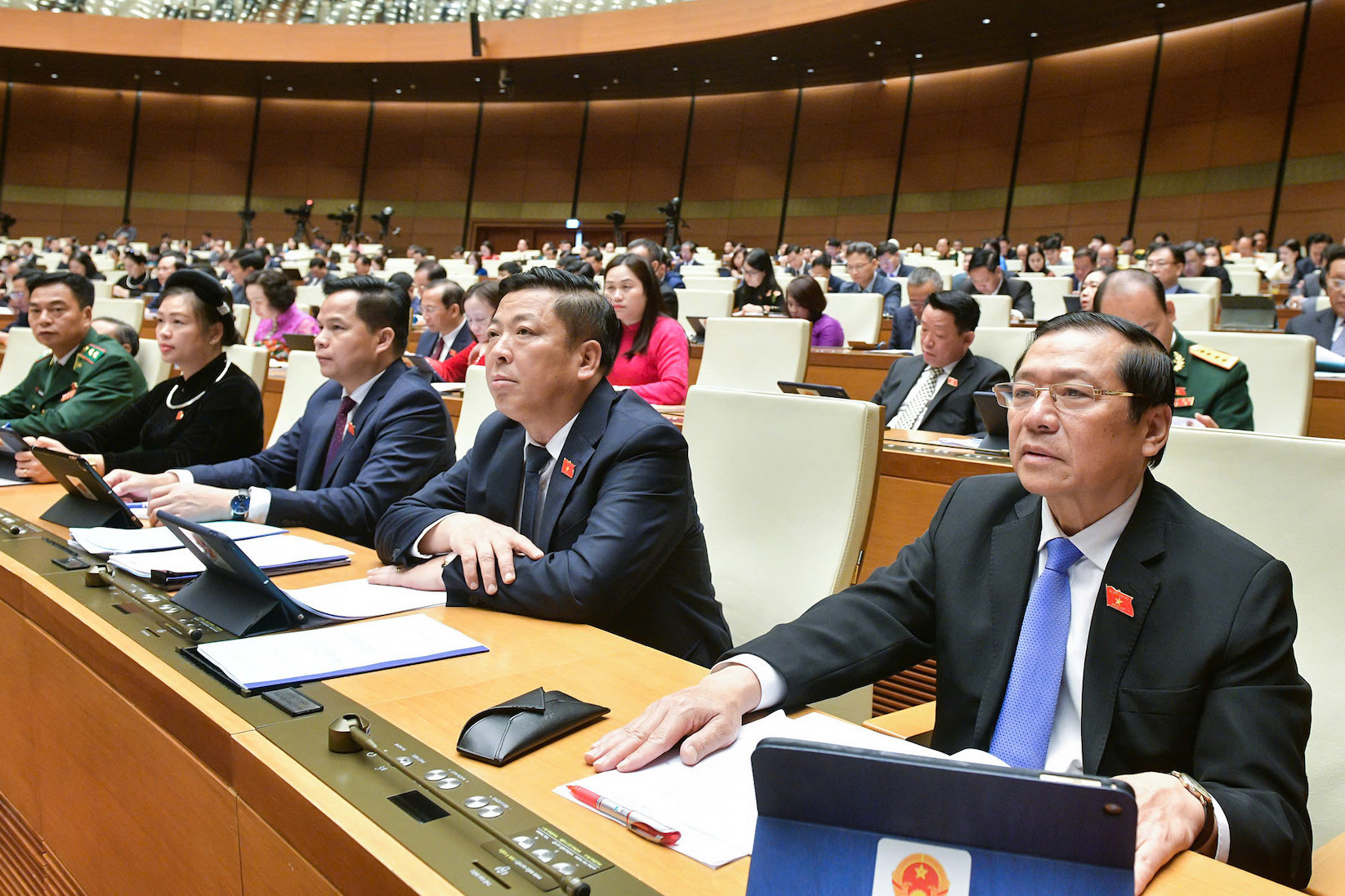“It only took five years to build Dubai, with 500 buildings worth $20 billion,” Minister Nguyen Chi Dung expressed, highlighting his frustration with procedural inefficiencies in Vietnam.
He elaborated that, for example, in Dubai, urban design only required two main rules: no two buildings could be identical, and no two adjacent buildings could align in a straight line. Regulations regarding structure and fire safety were clear and transparent, enabling swift progress.
After finalizing the design of Dubai, the city’s ruler reviewed the entire plan in just two hours. “Meanwhile, in Vietnam, securing permits for a five-star hotel takes three years. If Dubai had been developed under our procedural ‘forest,’ it would have taken 1,500 years,” he quipped.
Recalling Minister Nguyen Chi Dung’s speech at the National Assembly, I remembered his frequent references to lessons from Dubai, notably through the book “My Vision” by Dubai’s ruler, Sheikh Mohammed bin Rashid Al Maktoum. This book, which the minister often quotes, offers profound insights into governance and leadership.

A notable passage from the book reflects this vision: “A good leader always prioritizes the community's welfare over any factional interests. Trust in leadership is built through actions, not words. I speak of actions that show the leader views the people as the nation’s greatest asset, not a burden. There’s a vast difference between leadership rooted in love and respect and leadership driven by fear.”
This mindset helps explain how Dubai, a small emirate with a population of around 2 million and covering 4,000 square kilometers, has become a global city, prospering with 95% of its income from tourism and real estate, while only 5% comes from oil.
A line from the book resonates deeply: “In Africa, each morning a gazelle wakes up knowing it must run faster than the fastest lion, or it will be eaten. At the same time, a lion awakens, understanding it must outrun the slowest gazelle, or it will starve. This mirrors human competition. Whether you see yourself as the lion or the gazelle, you must run faster than others to survive.”
The author continues, “Our vision is sharp, our goals are clear, our resources vast, and our will strong. We are always ready to face upcoming challenges. Dubai will accept nothing short of leadership.”
Returning to Vietnam, discussions in the National Assembly on institutional reforms and legislative construction are crucial for removing bottlenecks and fostering development, particularly in the face of current stagnation.
For example, coal power projects take 5-6 years to approve under old regulations, gas power projects require 7-8 years, and nuclear power could take a decade if started today. “In the last 10 years, we haven’t launched any major power projects,” stated the Minister of Industry and Trade in front of the National Assembly.
Endless layers of permits and barriers are a familiar narrative in Vietnam. Anecdotes like “a single chocolate bar needing 13 permits” or “raising chickens taking less time than securing approval to sell them” highlight the bureaucratic maze.
To address these issues, General Secretary To Lam, in a recent directive on combating waste, emphasized that inefficiency erodes public trust in the Party and State, creates invisible barriers to economic and social development, and results in missed opportunities for national progress.
General Secretary To Lam pointed out pressing forms of wastefulness, including legal frameworks that fail to meet the practical needs of the country’s reforms, leading to implementation difficulties, resource loss, and inefficiency. He noted wasted time and effort for businesses and individuals due to complex administrative procedures and the subpar functionality of online public services. Additionally, inefficiencies within state apparatuses, stemming from corruption, incompetence, and avoidance of responsibility, also impede progress.
Acknowledging these realities is the first step toward transformative change.
Tu Giang